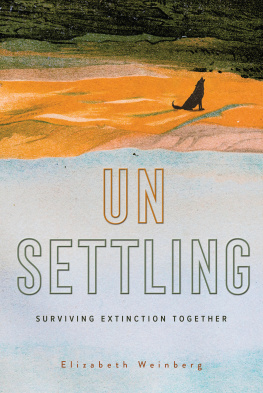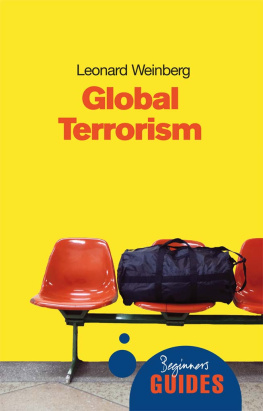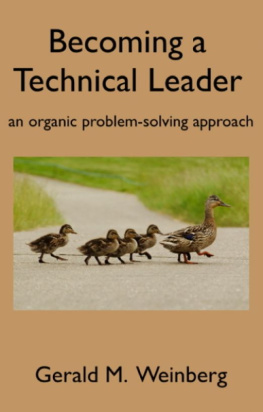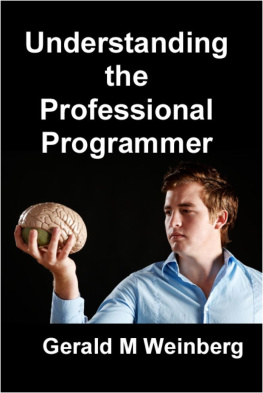Copyright 2019 by SAGE Publications, Inc.
All rights reserved. No part of this book may be reproduced or utilized in any form or by any means, electronic or mechanical, including photocopying, recording, or by any information storage and retrieval system, without permission in writing from the publisher.
FOR INFORMATION:
SAGE Publications, Inc.
2455 Teller Road
Thousand Oaks, California 91320
E-mail: order@sagepub.com
SAGE Publications Ltd.
1 Olivers Yard
55 City Road
London, EC1Y 1SP
United Kingdom
SAGE Publications India Pvt. Ltd.
B 1/I 1 Mohan Cooperative Industrial Area
Mathura Road, New Delhi 110 044
India
SAGE Publications Asia-Pacific Pte. Ltd.
3 Church Street
#10-04 Samsung Hub
Singapore 049483
Library of Congress Cataloging-in-Publication Data
Names: Weinberg, Thomas S., author. | Falk, Gerhard, 1924 author. | Falk, Ursula A., author.
Title: The American drug culture / Thomas S. Weinberg, State University of New York Buffalo, Gerhard Falk, State University of New York Buffalo, Ursula Falk.
Description: Thousand Oaks, California : SAGE, [2018] | Includes bibliographical references and index.
Identifiers: LCCN 2017031396 | ISBN 9781506304663 (pbk. : alk. paper)
Subjects: LCSH: Drug abuseUnited States. | Substance abuseUnited States. | Tobacco useUnited States. | Drinking of alcoholic beveragesUnited States.
Classification: LCC HV5825 .W38335 2018 | DDC 306/.1dc23
LC record available at https://lccn.loc.gov/2017031396
Printed in the United States of America
This book is printed on acid-free paper.
Acquisitions Editor: Jeff Lasser
Editorial Assistant: Adeline Wilson
Production Editor: Jane Haenel
Copy Editor: Mark Bast
Typesetter: Hurix Digital
Proofreader: Barbara Coster
Indexer: Nancy Fulton
Cover Designer: Candice Harman
Marketing Manager: Kara Kindstrom
Preface
The original reason for writing this book is mysterious, even to us, the authors. In the spring of 2013, Tom Weinberg found a contract for a book on alcohol in his mailbox. It had been signed by him, Gerhard (Gerry) Falk, and the publishers of a university press. What was puzzling was that it was dated 1983! Tom immediately took it to Gerry and asked him about it. It seems that Gerry had been going through some old papers in his office and came across the contract. Neither of us remembered sending in a proposal for such a book 30 years earlier or getting a contract for it. Why didnt we follow through on it? we asked each other. Neither of us could supply an answer. Nevertheless, we thought that a book on alcohol would be an interesting idea, so we sat down, outlined the chapters, and wrote it.
We quickly found out that this was no longer a topic of interest to the university presses, to which we sent a proposal and sample chapters, nor were small independent publishers interested in the project. We then decided that this was the kind of book more appropriate for a large textbook publisher. Tom contacted Jeff Lasser, his sociology editor at SAGE, for whom he and a colleague, Staci Newmahr, had earlier edited an anthology. Jeff was interested, but he suggested that we include other drugs to broaden its appeal. We did so, and the result is the book you are now reading.
As we thought about what the book should look like, Gerry suggested that we ask his wife, Dr. Ursula Adler Falk, to collaborate with us on the project. She is a psychotherapist who has worked with alcoholics and drug addictssome of whom are bothfor many years. He thought that the addition of case studies would be an important supplement to our text, broadening its appeal beyond sociology courses and enhancing its usefulness to students and faculty. Tom concurred. We have integrated some of the case histories into a couple of chapters, including , Becoming a Drug User: Careers, Personalities, and InteractionTwo Perspectives, cowritten with Dr. Ursula Adler Falk, which presents both the psychotherapeutic and sociological perspectives. In addition, the case histories are presented in two appendices. Appendix A contains the histories of Dr. Falks patients with alcohol use disorders, and Appendix B presents the case histories of those with substance use disorders. Case studies may be used in any number of ways, limited only by ones imagination. For example, students can use them as archival data for secondary analysis or to generate hypotheses about drug and alcohol abuse. For more advanced students, especially those interested in ethnomethodology and textual analysis,* they can be examined as texts, to understand how psychoanalysts conceptualize the situation and prognosis of their students.
* See Rod Watsons 2009 definitive work, Analysing Practical and Professional Texts: A Naturalistic Approach (Burlington, VT: Ashgate), for examples of how this might be done.
Our objective for this book is not only to help students understand alcohol and other drug use and abuse but, more important, to show them how sociological perspectives can be used in that process. To that end, , Alcoholism, explicitly label the sociological perspectives being used, whereas in other chapters, those perspectives are implicit.
Acknowledgments
A number of people helped in the development of this book. First and foremost is our sociology editor, Jeff Lasser, whose belief in our project and support and encouragement kept us motivated and focused. We are also grateful for the support of Adeline Wilson, editorial assistant in sociology, for her attention to detail. Jane Haenel, our production editor, made helpful suggestions and kept us on track. Mark Bast, our copy editor, was meticulous and indefatigable in his commitment to our project.
Clifford Falk deserves our thanks for dealing with the vagaries of the computer. Several people read drafts of chapters and provided critical information and help in clarifying our ideas. Dr. Bonnie A. Beane read the alcoholism chapter and supplied some important ideas. Dr. Rod Watson read several of the chapters and gave us insightful feedback, directing us to sources with which we had not previously been familiar. Rods friendship, enthusiasm for our project, and support are deeply appreciated. Dr. William Wieczorek, Director and Professor of the Institute for Community Health Promotion, Center for Health and Social Research of the Center for Development of Human Services, provided invaluable insight into the evolution of












